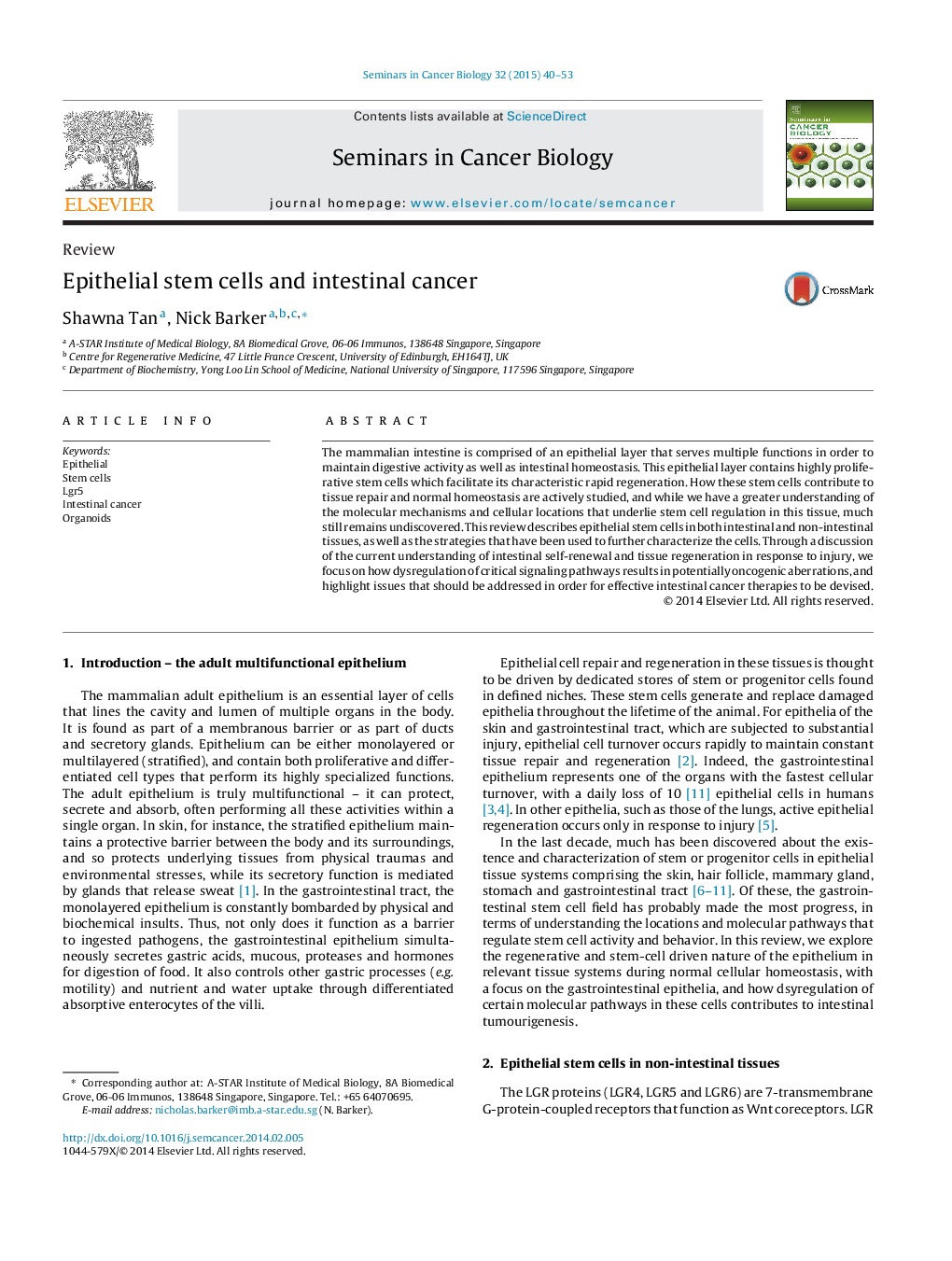| Article ID | Journal | Published Year | Pages | File Type |
|---|---|---|---|---|
| 2023612 | Seminars in Cancer Biology | 2015 | 14 Pages |
Abstract
The mammalian intestine is comprised of an epithelial layer that serves multiple functions in order to maintain digestive activity as well as intestinal homeostasis. This epithelial layer contains highly proliferative stem cells which facilitate its characteristic rapid regeneration. How these stem cells contribute to tissue repair and normal homeostasis are actively studied, and while we have a greater understanding of the molecular mechanisms and cellular locations that underlie stem cell regulation in this tissue, much still remains undiscovered. This review describes epithelial stem cells in both intestinal and non-intestinal tissues, as well as the strategies that have been used to further characterize the cells. Through a discussion of the current understanding of intestinal self-renewal and tissue regeneration in response to injury, we focus on how dysregulation of critical signaling pathways results in potentially oncogenic aberrations, and highlight issues that should be addressed in order for effective intestinal cancer therapies to be devised.
Related Topics
Life Sciences
Biochemistry, Genetics and Molecular Biology
Biochemistry
Authors
Shawna Tan, Nick Barker,
